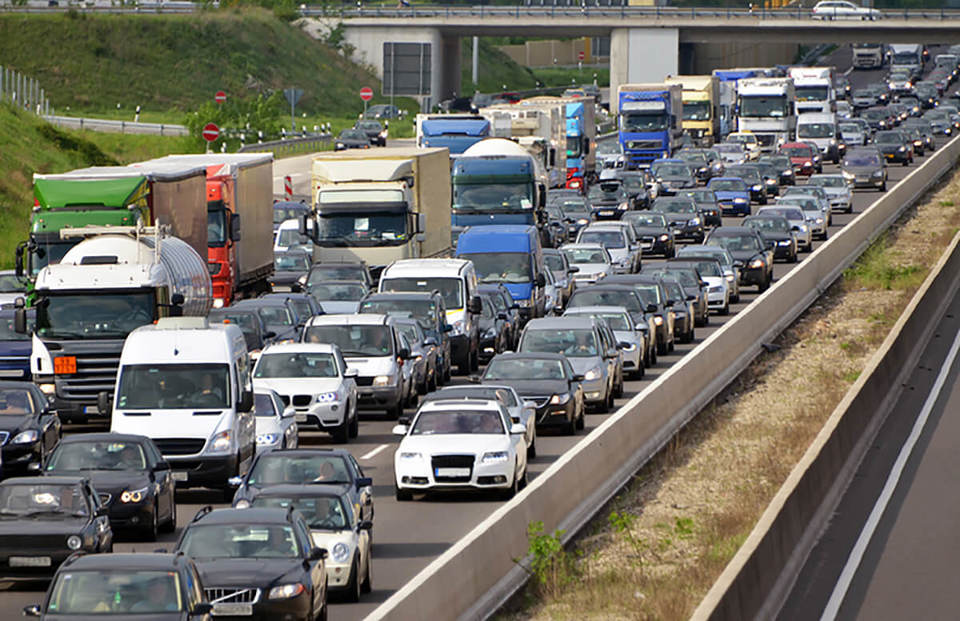More than half (57%) of motorists admit to driving too close to the vehicle in front of them, while a similar proportion (60%) break the speed limit by 10mph or more (60%) on motorways, research suggests.
The survey from Brake and Direct Line also reveals that almost all drivers worry about other drivers tailgating on motorways.
By driving too close to the vehicle in front and breaking the speed limit, drivers are leaving themselves far too little time to react in an emergency, risking devastating crashes, says Brake.
Julie Townsend, deputy chief executive of Brake, said: "Almost all drivers are concerned about the danger posed by other people tailgating on motorways and yet a shockingly high proportion admit driving too close and speeding themselves.
“There are no two ways about it: ignore the two-second rule or the speed limit on motorways and you're putting yourself and others at risk of a horrific crash.
“Traffic laws are not just for other people: all drivers can help make our motorways safer and prevent needless tragedies by committing to keep your distance and stay under speed limits, including temporary lower limits."
The survey reveals that in the past year:
• Almost six in ten (57%) admit leaving less than a two-second gap between themselves and the vehicle in front, with almost three in ten (28%) doing so monthly or more. More men (61%) admit doing so than women (53%).
• Six in ten (60%) admit breaking the 70mph speed limit by 10mph or more, with almost three in ten (28%) doing so monthly or more. Men are the worst offenders, with almost seven in ten (69%) doing 80mph or more, and more than a third (36%) doing so at least monthly, compared with just over half (53%) and two in ten (22%) women, respectively.
.
Brake urges all drivers to always keep at least a two-second gap between themselves and the vehicle in front, extending this to four seconds or more in wet weather or poor visibility - on all roads, not just motorways.
Drivers should also keep within the posted speed limit at all times, including temporary and variable limits; not only will this reduce your chances of a horrific crash, but it will also reduce fuel consumption.
Rob Miles, director of motor trading at Direct Line, commented: " Whilst the UK's motorways have proportionately less crashes than other roads, speed is still the biggest killer of road users. We believe it is better to save lives than to save a few minutes of journey time".
Brake says that if you need to stop suddenly while driving at 70mph, you will travel 21 metres while you're thinking before you even hit the brakes. And, you'll travel that distance in less than a second. Your total stopping distance at this speed is 96m, or 21 car lengths.
Increases in speed on motorways, which some drivers may consider small says the road safety charity, can make a massive difference in stopping distances and crash likelihood.
At 80mph, stopping distances are 27% greater than at 70mph (122 metres compared to 96 metres). Research shows reducing the average speed on a road by just 1mph is likely to reduce the frequency of crashes by 5%.
Simon Sheldon-Wilson, traffic management director at the Highways Agency, said: "Safety is our top priority and we are committed to continuing to reduce the number of people killed and seriously injured on our roads.
“Congestion on the strategic road network is estimated to cost the economy £3 billion each year, 25% of which is caused by incidents. That's why we remind drivers of the dangers of tailgating and support Brake's advice to keep a safe distance from the car in front and to adhere to fixed and variable speed limits."
Read the full survey by clicking here.





















Chris Ward - 22/05/2014 12:59
Whilst the above article on tailgating and speeding is very interesting I think the Highways Agency are missing the point. The population of this country are not going to get out of their cars, owing to the wrecking of our railways and the invitations to drive from bygone eras. Therefore, repair the existing roads properly, not just patch them (I include the Councils in this) and build/improve existing roads not just spend millions putting in a so called managed motorway which are just an excuse for a few speed cameras eg: M62. Secondly, train drivers in the first place to drive, not just pass a 30mph max speed test. Lets have some proof they are serious about road safety and drivers might "get on board" !